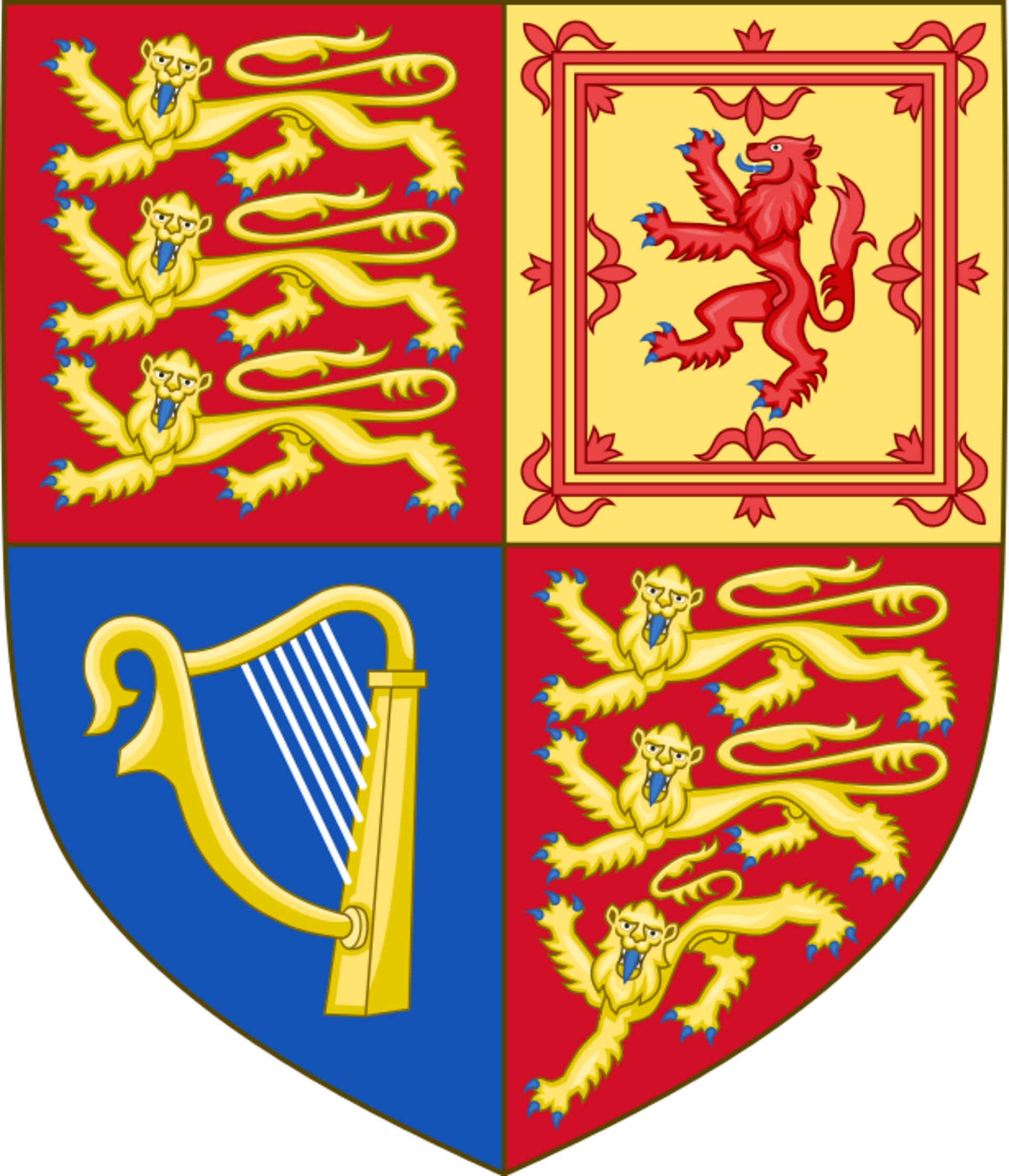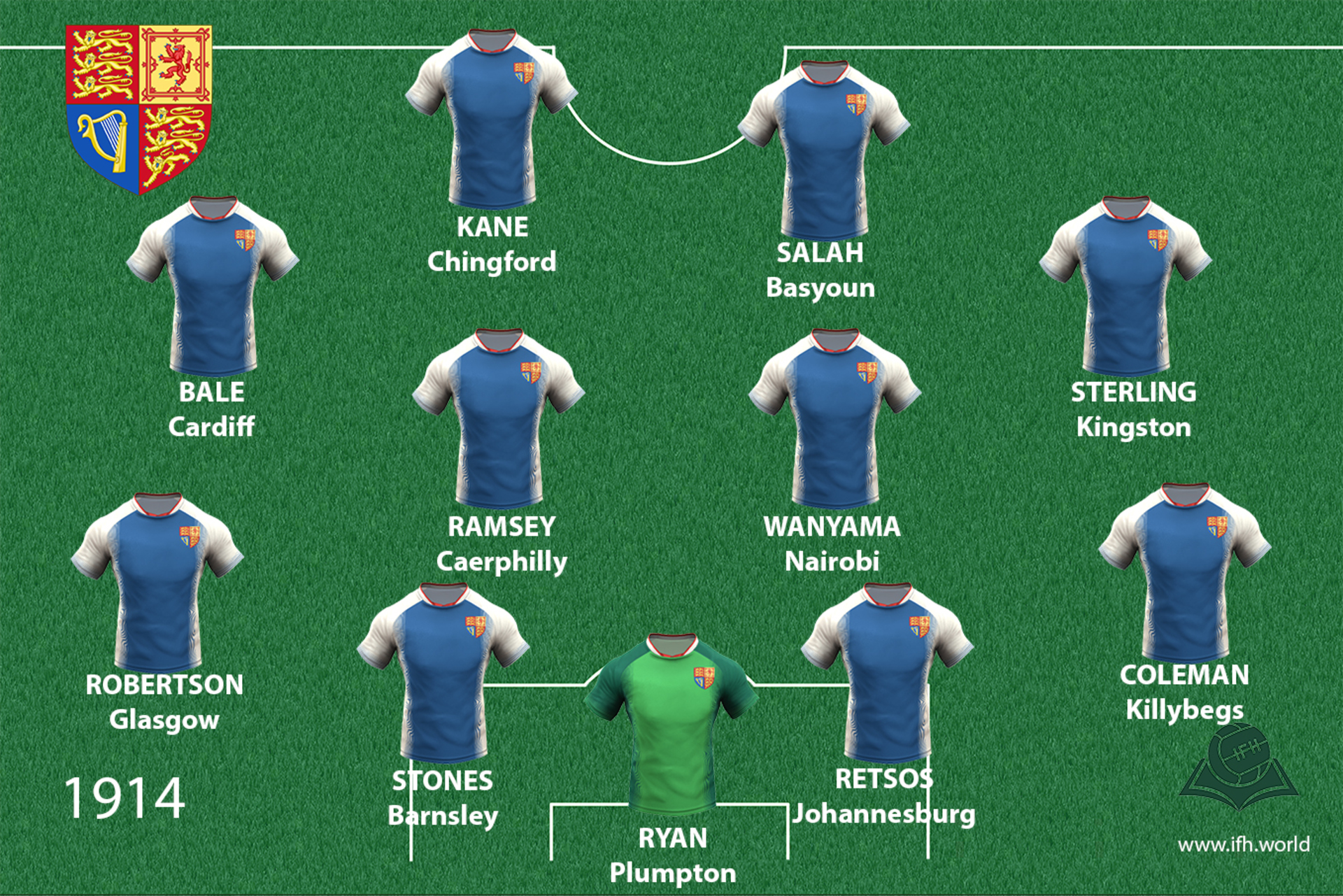British Empire
The three main pillars of the British Empire were dominance at sea, and with it, dominance in world maritime trade; unquestionable dominance in international banking; British geopolitical dominance in the world's major commodities - cotton, metals, coffee, coal and, in the early 20th century, oil.

Coat of arms
Shirt
| Position | First name | Last name | Mjesto rođenja | Like | Dislike | |
|---|---|---|---|---|---|---|
| GK | Jordan | PICKFORD | Washington |
28 |
9 |
|
| GK | Mathew | RYAN | Plumpton |
3 |
8 |
|
| DC | Chris | SMALLING | London |
6 |
9 |
|
| DC | Panagiotis | RETSOS | Johannesburg |
2 |
11 |
|
| DC | Winston | REID | Auckland |
1 |
4 |
|
| DRC | John | STONES | Barnsley |
19 |
1 |
|
| DR/MR | Kieran | TRIPPIER | Bury |
12 |
1 |
|
| DR/MR | Kyle | WALKER | Sheffield |
17 |
3 |
|
| DR/MR | Seamus | COLEMAN | Killybegs |
6 |
7 |
|
| DL | Andrew | ROBERTSON | Glasgow |
19 |
0 |
|
| DL | Danny | ROSE | Doncaster |
10 |
4 |
|
| DL | Luke | SHAW | Kingston upon Thames |
13 |
3 |
|
| DRC/DMC | Eric | DIER | Cheltenham |
18 |
3 |
|
| DMC | Jordan | HENDERSON | Sunderland |
23 |
6 |
|
| DMC | Viktor | WANYAMA | Nairobi |
4 |
7 |
|
| DMC/DL | Kwadwo | ASAMOAH | Kumasi |
3 |
3 |
|
| MC | Jack | WILSHERE | Stevenage |
8 |
8 |
|
| MRLC | Aaron | RAMSEY | Aaron |
14 |
0 |
|
| AMC | Adam | LALLANA | St.Albans |
11 |
11 |
|
| AMC | Dele | ALLI | Milton Keynes |
22 |
8 |
|
| AMC | Ross | BARKLEY | Liverpool |
6 |
3 |
|
| AMRLC | Alex | OXLADE-CHAMBERLAIN | Portsmouth |
12 |
1 |
|
| AMRLC | Alex | IWOBI | Lagos |
4 |
2 |
|
| AMRL | Gareth | BALE | Cardiff |
22 |
2 |
|
| AMRL | Jadon | Sancho | Camberwell |
10 |
6 |
|
| AMRL | Raheem | STERLING | Kingston |
14 |
2 |
|
| SS/FRLC | Wayne | ROONEY | Liverpool |
21 |
5 |
|
| FRLC | Daniel | STURRIDGE | Birmingham |
15 |
4 |
|
| FRLC | Marcus | RASHFORD | Manchester |
19 |
3 |
|
| FRLC | Mohamed | SALAH | Basyoun |
19 |
4 |
|
| FC | Harry | KANE | Chingford |
20 |
4 |
(Today: Great Britain, Ireland, parts of Africa, Asia, Australia, New Zeeland)
The primary goal of 19th century British imperialism was to secure a monopoly on trade control, and the entire empire was created and existed solely for the private interest and material benefit of the numerically insignificant London monetary elite and its clients, who were behind the protection and support of the British Government. In their colonies, they used indirect rule, that is, by installing nominally independent local leaders, while British civilian administrators and the military practically controlled finance and military security. Its foreign policy was based on changing allies. As an island nation, they did not spend much on maintaining the mainland army, and looting the goods of distant parts of the world also enabled it to maintain a balance of power on the European continent.
It created and financed coalitions against any state that, in any historical period, was on the path to mastering European territory because the next step could endanger the British empire. To that end, she led and was involved in countless wars during the 19th and 20th centuries. At the end of the 19th century. changes its traditional anti-French, anti-Russian and pro-Ottoman policies to weaken the German Empire, and its effort to disrupt the Berlin-Baghdad rail project, which, if realized, would be potentially dangerous to its imperial dominance, would turn into one of the major causes of the outbreak of World War I war.
Sources
- William F. ENGDAHL, Stoljeće rata : anglo-američka naftna politika i novi svjetski poredak, Zagreb, 2008.
- Niall FERGUSON, Kolos, Zagreb, 2011.
- Coat of arms: https://en.wikipedia.org/wiki/Royal_coat_of_arms_of_the_United_Kingdom
